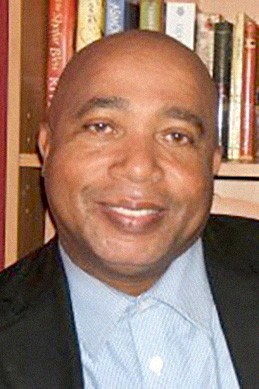- Job Market
- Upload Ad Requests
- Rates
- Home
- Video
- About Us
- Contact Us
- Business Showcase
- Archives
- Blogs
- Upload Advertisements
- Video News Release
- Front Pages
- Community Notices
- Law Enforcement
- Government
- Community Voice
- Health Care
- International
- Sports
- Politics
- Community
- Entertainment
- Advertorial 2
- Non-Profit Organisation(NPO)
- Adopt a Pet
- Tourism
- CIIPO
- Taste of Class
- Opinions & Editorial
- Environment
- Outstanding Employee
- Outstanding Performance
- Celebration
- Gardening
- Beneficial Ownership
- Tips and tricks
- Cover Stories
- Cost of Living
- Development
- Employment
- Education
- Arts and Culture
- Business
- Global News Briefs
- Hurricane Watch
- Breaking News
- Regional
- Public Notices
- Local News
- Lifestyle
- Finance
- Economic
- Election Center
- COVID - 19
- UK Territories
- Advertorial
- History
- Inspiration
- The Panel
- The Interview
- Cayman Conversation
- Community Notices
- Law Enforcement
- Government
- Health Care
- Sports
- Election Center
- Cayman Conversation
- More
- Front Pages
- Community Notices
- Law Enforcement
- Government
- Community Voice
- Health Care
- International
- Sports
- Politics
- Community
- Entertainment
- Advertorial 2
- Non-Profit Organisation(NPO)
- Adopt a Pet
- Tourism
- CIIPO
- Taste of Class
- Opinions & Editorial
- Environment
- Outstanding Employee
- Outstanding Performance
- Celebration
- Gardening
- Beneficial Ownership
- Tips and tricks
- Cover Stories
- Cost of Living
- Development
- Employment
- Education
- Arts and Culture
- Business
- Global News Briefs
- Hurricane Watch
- Breaking News
- Regional
- Public Notices
- Local News
- Lifestyle
- Finance
- Economic
- Election Center
- COVID - 19
- UK Territories
- Advertorial
- History
- Inspiration
- The Panel
- The Interview
- Cayman Conversation
Subscribe

Foundational Elements of a Just Constitution (Part One)
Dr. Livingston Smith

By Dr. Livingston Smith
It is my view that even though constitutional reform is critical as an activity of politico-cultural renewal, not enough substantive discussion has been undertaken throughout Caribbean societies on the deep and relevant issues. Nevertheless, the renewal of political systems must begin with the renewal of thinking which is grounded in sound philosophy. The discussion and analysis that precede constitutional reform should centre on personhood and evolve around foundational issues of citizenship, justice, democracy and context. In other words, a ‘just’ constitution will have as its foundation, firstly and most importantly, a proper conception of personhood which should then be used as a guide in framing issues of citizenship, democracy, justice and human rights, and the logic of context.
A Conception of Personhood
It is my view that a mature understanding of the human person and an acceptance of his primacy is the most important basis of a ‘just constitution’. A constitution is made both by and for people, and so ideally must rest on a sound conception of the human person. A society which has a narrow view of human beings will produce systems and constitutions, and, consequently, a type of governance which reflects this view. This will be revealed in the kinds of human rights allowed, and, possibly, the extent of participation to which citizens are seen as entitled.
There must be some basic assumptions about the nature of human beings for whose benefit government legitimately exists. Human beings are first and foremost, rational beings, who can think for themselves, deliberate, make choices and decisions and formulate, upon reflection, what best constitutes the “good” for their individual and collective life. ‘Personhood’ means autonomy: the capacity, in the absence of overriding coercion, of a person to act on his or her own deliberate judgments. Human beings are moral in that they have the capacity and tendency to develop ideas about the way they and others ought to behave. This morality includes a sense of justice and a belief in a kind of equality.
Liberal Democratic theory places the individual at the center of its value system. From the perspective of this theory, the value of society or community is not a thing apart from the individuals that compose it. Democratic theory rests on the rationality and autonomy of the individual.
The Anglophone Caribbean, though steeped in the Christian tradition, does not, it would appear, draw sufficiently from the positive aspects of the Christian conception of personhood. For example, Christianity places a high level of importance and sacredness on the individual as a human being. The Biblical narrative asserts that man is neither a cosmic accident nor an evolutionary paradigm. In fact, the image of God motif, so central to the Genesis account, is possibly the most powerful expression of the dignity and uniqueness of man. Although what constitutes the image of God has been a subject of theological debate throughout history, and although numerous identifications have been made of man’s rationality, individuality, dominion, creativity, morality, personality, et cetera, the phrase “image of God” places upon human persons a unique dignity and worth.
As John Fowler, in his book, The Making of a World View, argues:
‘’Man is matter, yet above matter; he is creature, yet above other creatures; he bears the image of God yet is not God; he is not only conscious, but conscious that he is conscious; he can stand at the center of existence and survey the past, the present, and the future; history, action and hope are part of his movements. ‘’
It must be abstracted from the Christian perspective that the citizen, the human being, created in God’s image, must be viewed as rational - with the capacity for morals and with guaranteed rights of civility, decency, respect, and freedom.
A just and moral Constitutional framework is one which is grounded in a proper conception of personhood as having the capacity for making individual choices and to identify what is meaningful for their lives. The human person then, an emotional, psychic and social creature, should be treated as an end in himself and not merely as a means. As McIntosh reasons, the duty to respect others is grounded in the value of their humanity. The dignity principle, he points out, is indispensable with respect to the construction of a system of laws that can provide the framework for moral relations among individuals.
But even with these capacities, humanity is flawed and sinful. Evil is a part of the human situation, and we live in a world full of turbulence and conflict. A proper constitution must wrestle with the fact that the circumstances of life on earth are bewildering, flawed, tragic and contradictory.
The constitution must be constructed on an inherent suspicion of human nature- conscious of both the positives and the flaws. For example, it must prevent those hungry for power from having too much of it. It should make it impossible for the rise of political tyrants and dictators who would use power for the destruction of, not the betterment of society. We continue next with foundational ideas of citizenship in the next article.
Online Poll
Independent or Party: Independents top the Category with 23 Candidates. Select your preference
Popular News
Mexico beat Cayman 20-10 in ‘Big Match X’ Rugby
05 Jun, 2024
CIOC announces team for Paris 2024
11 Jul, 2024














Comments (0)
We appreciate your feedback. You can comment here with your pseudonym or real name. You can leave a comment with or without entering an email address. All comments will be reviewed before they are published.